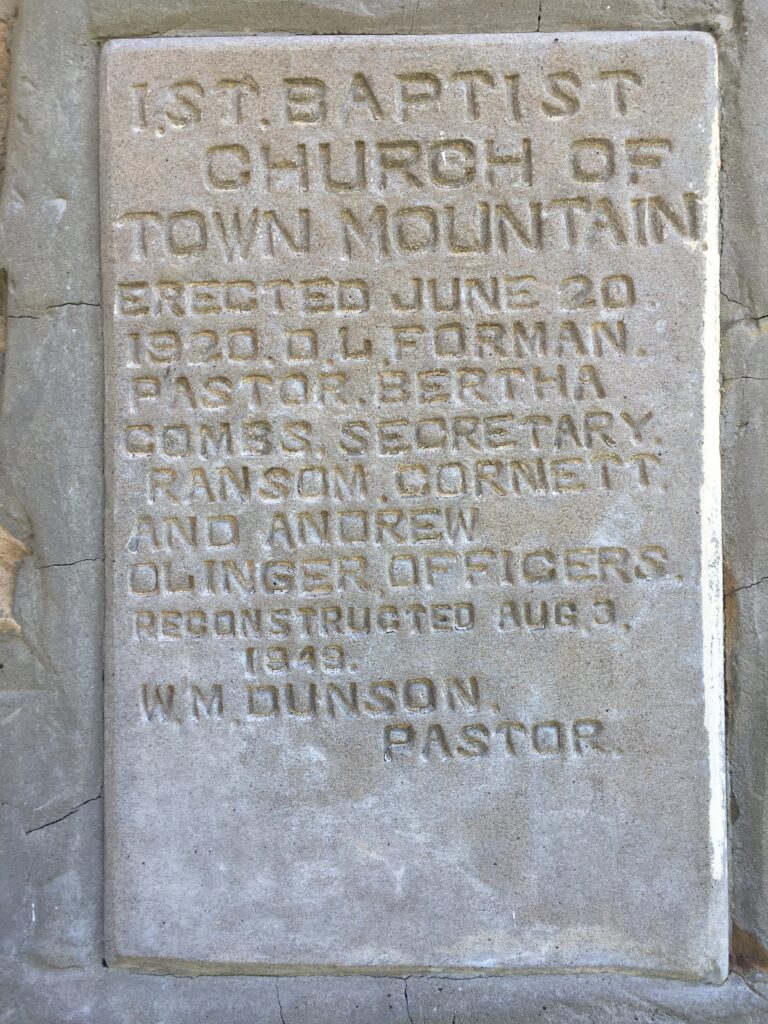
When you were learning to drive, you tended to focus on the road immediately in front of you—a tactic that made you basically a reactionary, jerking the wheel in response to whatever suddenly popped into your field of vision. As you gained experience, you began to look farther down the road, your peripheral vision taking in pretty much everything from here to the horizon. It’s much less jarring to make tiny corrections with long-range significance than to react to every little thing as if it’s a crisis.
So we start with the long view, the big map, with the little tiny star that says “You are here.”
That’s what Paul does in this passage.
Till we all come in the unity of the faith, and of the knowledge of the Son of God, unto a perfect man, unto the measure of the stature of the fulness of Christ (Ep 4.13).
God’s goal for us as his people is that by the end of the story we will be grown up—mature. That’s what “perfect” here means.
Mature in what?
In unity.
We need to be united, inseparable, fiercely attached to one another, a band of brothers.
What’s the basis of our unity? Some people are united by their love for motorcycles, or quilts, or cocker spaniels, or Jamaican Blue Mountain coffee.
We’re united by our faith, and by our knowledge of the Son of God.
That statement needs some clarification, some delimitation.
In the Bible the term “the faith,” with the article, refers not so much to the fact that we believe as to the content of what we believe. To put it more bluntly, it refers to doctrine.
Isn’t that interesting. In Paul’s mind, doctrine isn’t something that divides. It’s something that unites. Because we believe the same things, we are pulled together and become inseparable.
I should note that this doesn’t mean that we agree on everything. The Scripture elsewhere urges each one to “be fully persuaded in his own mind” while extending grace to those with other convictions (Ro 14.5). No, “the faith” is the most important stuff, the doctrines that define Christianity, beginning with the gospel, which is “of first importance” (I Co 15.3-5).
That’s reinforced by the next phrase, “the knowledge of the Son of God.” The doctrines that are most central, our unifying principles, are those that have to do with the Son—who he is (person), what he is like (attributes), what he has done (work). It’s a truism that the easiest way to spot a false teacher is to ask him who he thinks Jesus is.
But I think Paul is saying more here than just that our Christology has to be right.
The word translated “knowledge” is epignosis, with a prepositional prefix that functions as an intensifier. Greek lexicons often render this word as “full knowledge,” “true knowledge,” “recognition.” I’d suggest that it means what we mean when we say, “Now I get it!”
A look at some other biblical passages that use the word reinforces this idea—
- Through the Law comes the knowledge of sin (Ro 3.20).
- They have a zeal for God, but not according to knowledge (Ro 10.2).
- … with knowledge and all discernment (Php 1.9)
- That you may be filled with the knowledge of his will in all spiritual wisdom and understanding (Co 1.9)
- Ever learning, and never coming to the knowledge of the truth (2Ti 3.7).
- … the full knowledge of everything that is in us for the sake of Christ (Phm 6)
So what is “unity of the knowledge of the Son of God”?
I’d suggest that when people know who Christ is, through his revelation of himself through the Word, and when through that knowledge they come to know him as Creator, Savior, Lord, Shepherd, Friend, they’re going to be drawn together into a unity that simply cannot be compromised.
And then they grow, united, as a single body, to a spiritual stature that is appropriate for the size of its head, who is Christ (Ep 1.22-23).
Now, how do we get there?
Paul has some very practical observations about that, which we’ll get to in the next post.
Part 3: The Short Range: Consistency | Part 4: The Short Range: Discernment | Part 5: The Short Range: Truth
Photo by Nagesh Badu on Unsplash



